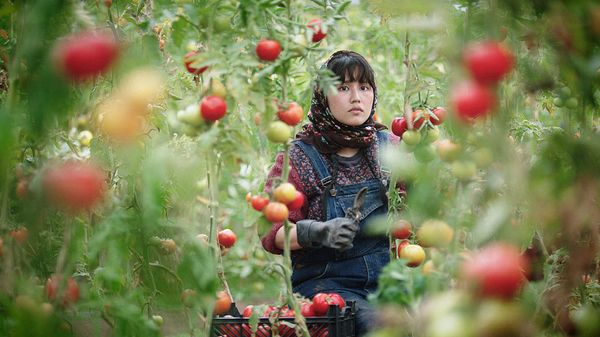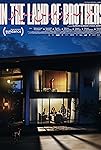Eye For Film >> Movies >> In The Land Of Brothers (2024) Film Review
In The Land Of Brothers
Reviewed by: Amber Wilkinson

The debut film from Raha Amirfazli and Alireza Ghasemi is a refugee drama with a difference, both in terms of its setting and its timescale. The stream of films about the refugee experience on the fringes of Europe has continued this year with the likes of Io Capitano and The Green Border, which, like many before them, focus on the struggles of refugees to reach safe haven.
This triptych of stories - connected by an extended family - takes a different tack. It is set within Iran after migration has happened and bookended by the beginning and the end of the US invasion of Afghanistan from 2001 to 2021, allowing the writer/directors to explore systemic injustices faced by those who have sought sanctuary in the country. The invasion was just the driver of the latest wave of refugees, with an intertitle at the start of the film noting that five million Afghans have fled to Iran, which has led to it being referred to as “the land of brothers”.

Amirfazli and Ghasemi’s trio of stories, each self-contained but building a cumulative head of steam, suggest the situation is a lot less familial than that description might indicate. Starting in the cold winter of 2001, we meet young Mohammad (Mohammad Hosseini). At night, he works with his extended family to harvest tomatoes in enormous greenhouses and helps his cousin Leila (Hamideh Jafari) with her English, while in the daytime he seems to be doing well at school. One day on the way home, however, he and his mates are stopped by the police and, because he doesn’t have his resident’s card on him, he finds himself scooped up in a deliberately targeted sweep to get some free labour down at the station. Amirfazli and Ghasemi show how this situation escalates over time leaving Mohammad with few options as a means of escape.
This segment is marked by a creeping dread and inevitability of harm that flows through into the next story ten years later. Leila is now a married adult with a young son, working for upper middle-class couple Negin (Marjan Ettefaghian) and Benham (Mehran Vosoughi) and who are also soon to become migrants. This chapter of her story begins with a tragedy that puts Leila in an almost impossible position of keeping up appearances in order to protect herself and her son from deportation.
Finally, in the concluding segment we encounter her brother Qasem (Bashir Nikzad), who was briefly glimpsed in the film’s first section. He is also now married to Deaf seamstress Hanieh (Marjan Khaleghi) with a grown son. Events are again triggered by tragedy only this time the directors use it to show how perverse the country’s systems of acceptance can be.
Each of these stories is robust and self-contained but the directors achieve a flow of ideas through them, helped by the spare but lilting score from Frederic Alverez. Throughout, Amirfazli and Ghasemi find strength in contrast, whether it is the warmth of the greenhouse world compared to the cold outside in Mohammad’s world, the promise of a new life for Leila’s employers in comparison to the threat she faces or the pain that strips any potential joy from events in the life of Qasem. Thoughtful and stripped of sensationalism, each story and its wider implications bite deep.
Reviewed on: 23 Jan 2024















